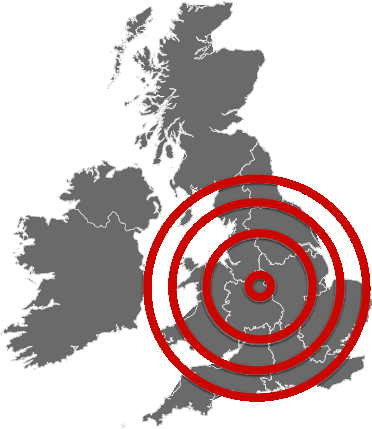About granite
Granite is frequently found in home and workplace interiors, it’s suitability is well established. A popular choice for large outdoor spaces too, you may have noticed it used in or around historic buildings. Its continued use is testament to its outstanding strength and durability, attributes that do not in any way detract from the appearance of the stone. Granite flooring is typically light coloured, whites, pinks and greys are common. Due to the way the rock is formed it carries a speckled appearance but when professionally treated can be taken to a stunning high-sheen, reflective finish. Many luxury interiors incorporate granite, from kitchen floors to bathrooms to countertops and even tables.
How is granite made?
Granite is an igneous rock, meaning it’s formed by natural volcanic processes within the earth’s crust. Formation occurs at extremely high temperature and pressure, which explains its outstanding durability. Granite’s distinctive sparkle comes from silicon and oxygen particles which become trapped in the rock. Accessing volcanic granite can be challenging, often highly powerful and specialised machinery is required. Because of its strength, diamond edged tools are used to shape and polish the rock. The creation of tiles and slabs can take some time. The results are generally worth the wait, highly polished granite offers a stunning finish.
Caring for granite floor
As you might expect, in order to keep it looking its best you’ll need to take good care of your granite floor. Regular polishing and sealing is a must if you’d like to avoid scratches and abrasions. Likewise, that glorious reflective sheen can become dull if you don’t keep an eye on it. This doesn’t mean hours and hours each day laboriously cleaning every inch, a quick wipe down with a cloth a few times a week should suffice. If the surface is already starting to show some abrasions care should be taken in buffing them out. Specialist polishing equipment and chemicals are generally recommended to maintain the best possible shine, avoid generic polish products as they can actually deteriorate the sheen. If in any doubt it’s certainly worth getting the opinion of a professional, as there is a chance marks could be made worse if the wrong products are used.
Granite is an alkali stone, this means it is vulnerable to the effects of acidic cleaning products and spillages. All spillages should be wiped up as soon as possible. Wear is unavoidable when granite is used in areas of high traffic or footfall, dirt and dust will eventually degrade the outer layers of sealant and expose the rock to scratches. Professional cleaning will ensure that the most appropriate sealer and finishing products are used, and so long as it’s treated once a year granite has the potential to look stunning for decades.

